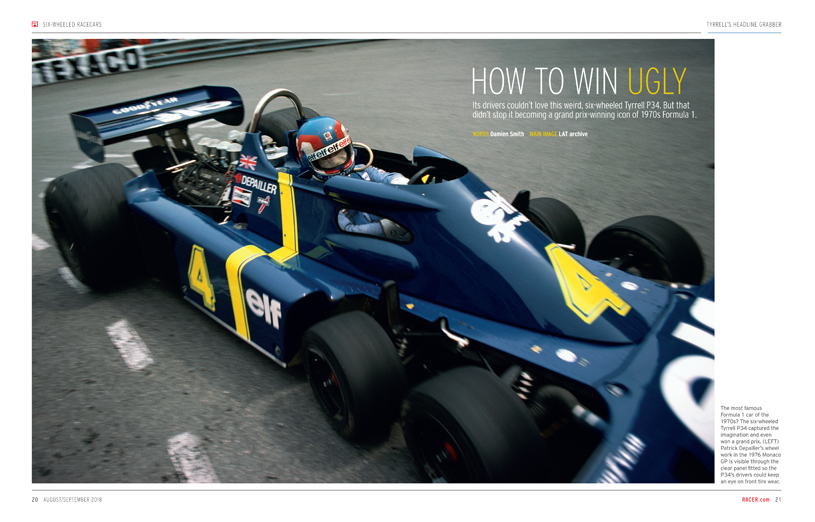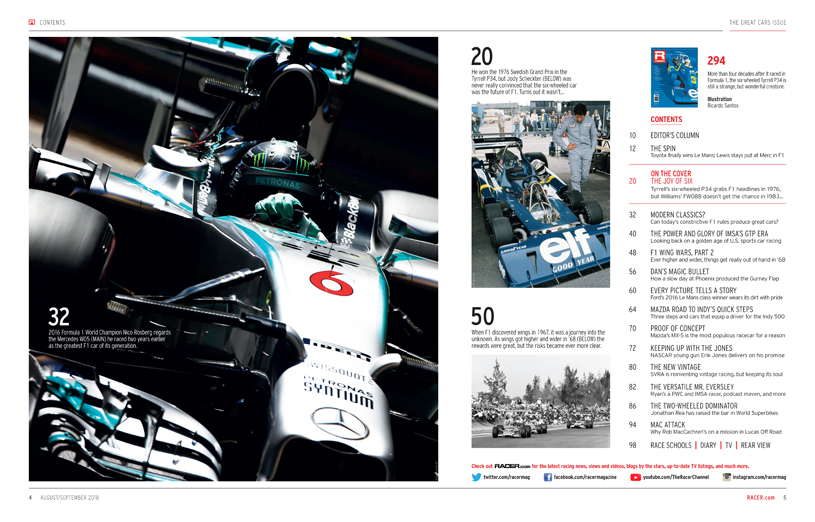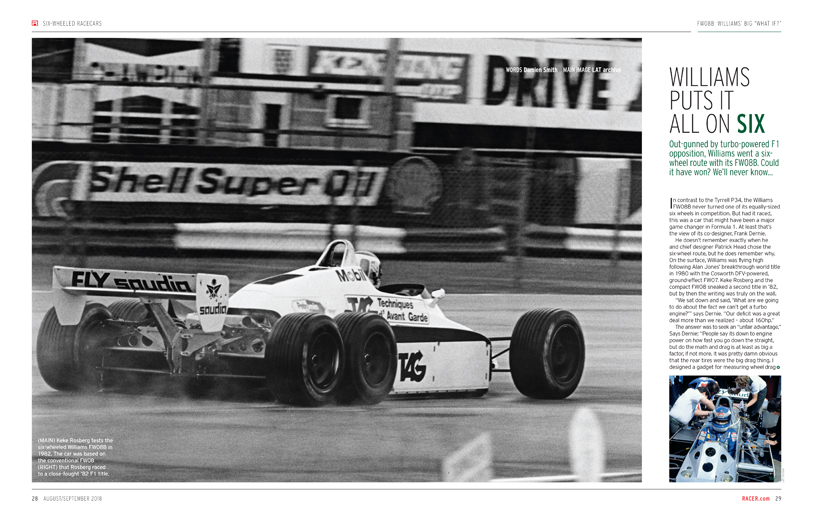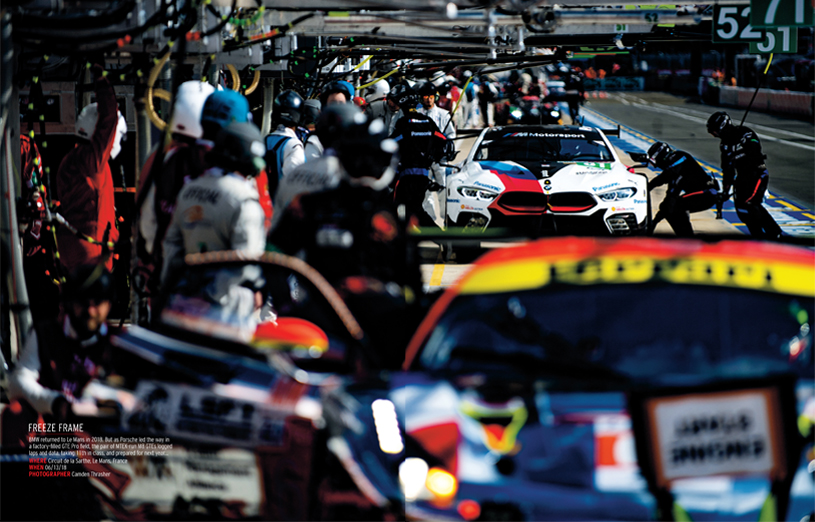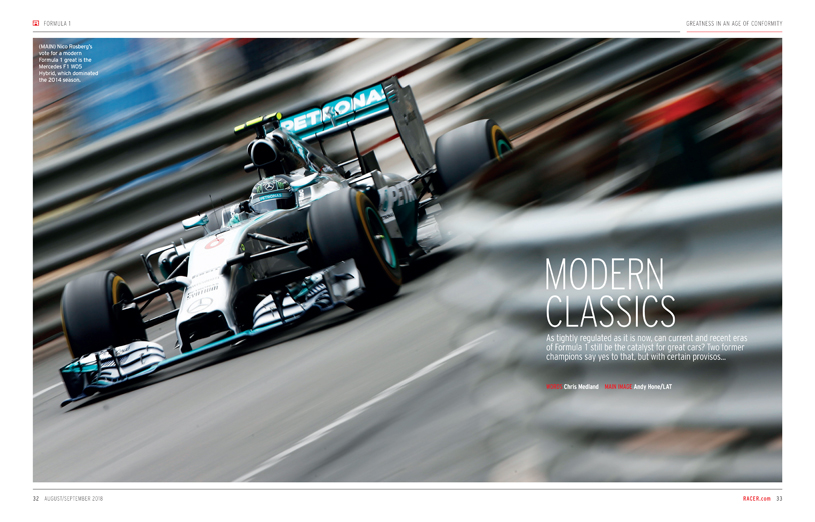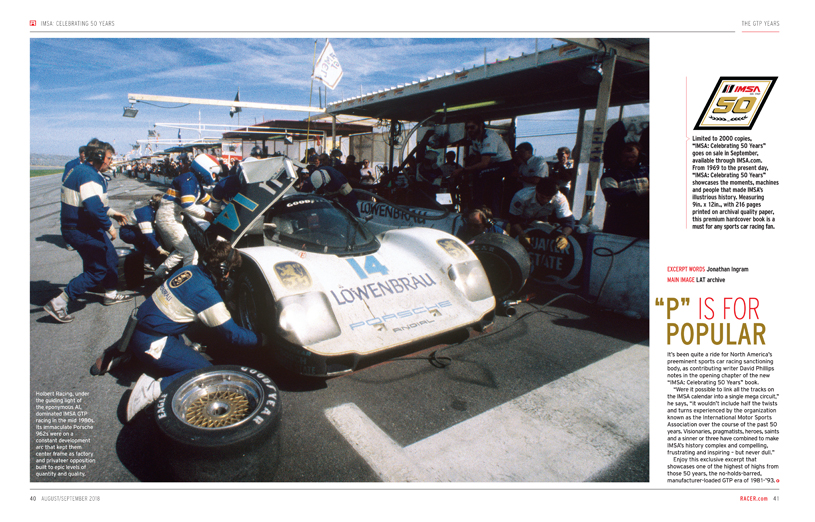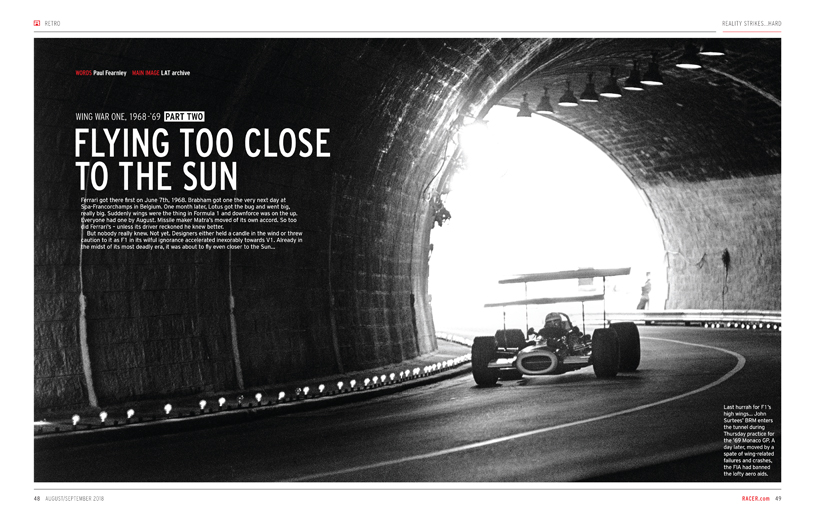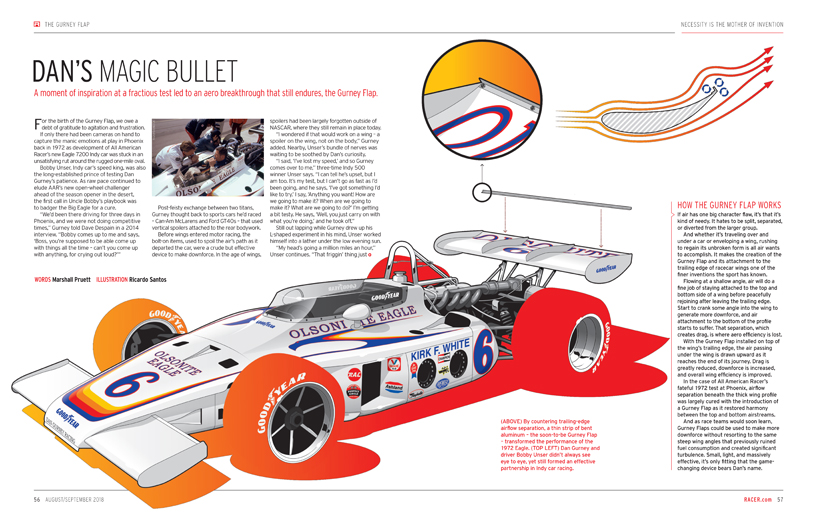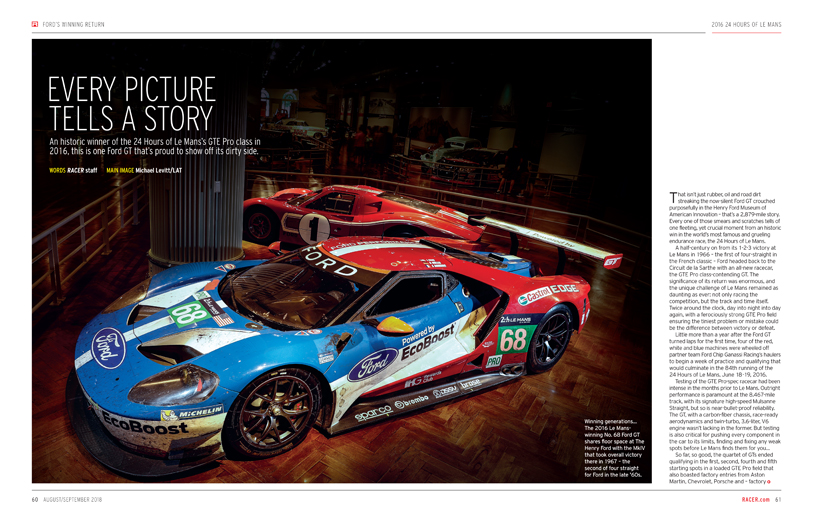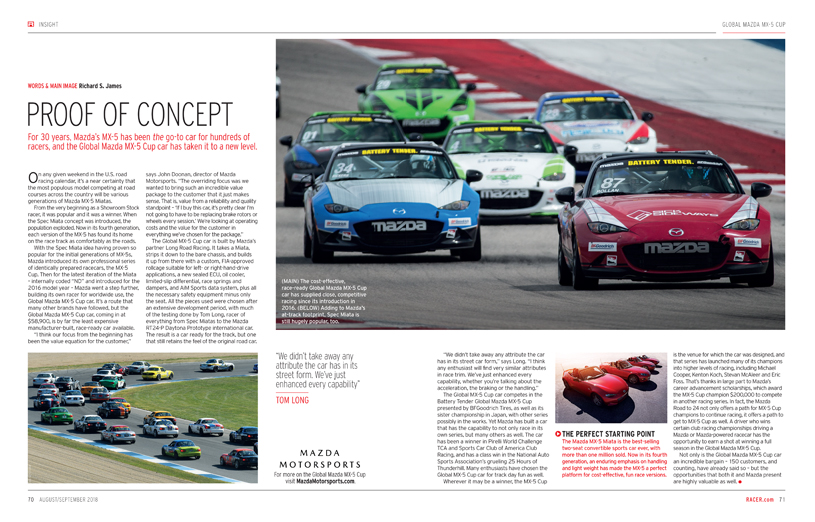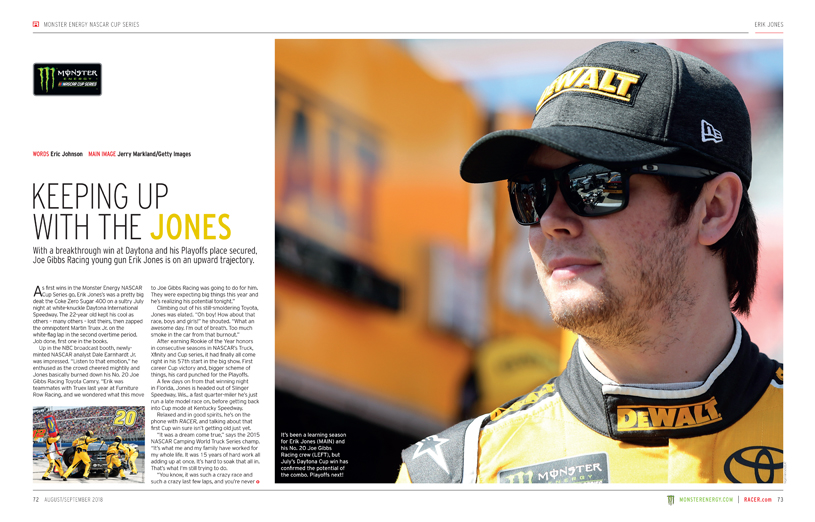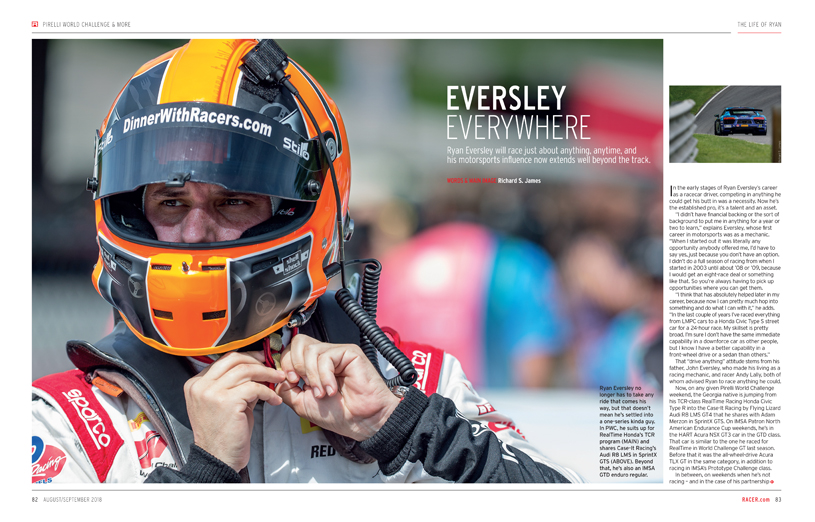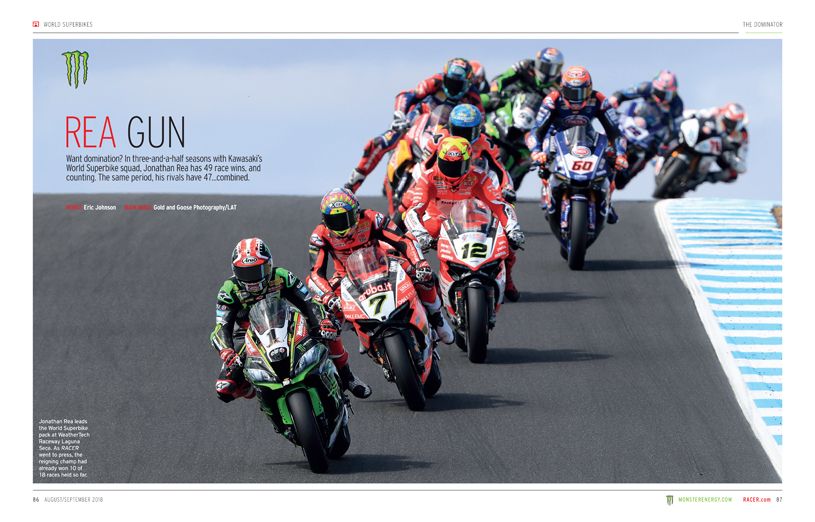Number 294: The 2018 Great Cars Issue
It’s a recurring topic of conversation when we put together our Great Cars Issue, but in an era when the rules for many racing series are so restrictive, what defines a great car now?
Nico Rosberg, the 2016 Formula 1 World Champion cites relative performance as the defining attribute for greatness. The further ahead of its competition, the greater the car. Succinct, measurable and, I guess, unarguable.
But for me, greatness isn’t merely empirical. Take the six-wheeled Tyrrell P34 that graces RACER’s cover. In terms of results, it didn’t set the F1 world alight, with a single grand prix win in 1976 (on a track that flattered its few positive attributes) and a handful of podiums, before being put out to grass at the end of ’77.
But does any other F1 car come even close in terms of its impact? As a kid, the model car I had to have was the P34. The poster above my bed was a P34 (in First National City colors, not the evocative Elf livery, oddly enough...). And friends who could care less about F1 knew about this weird, six-wheeled racecar.
Add in the left-field bravery of Derek Gardner’s design, and team boss Ken Tyrrell’s courage for going along with it, and the P34 makes a compelling case for greatness, just not a wholly measurable one.
Fast forward almost four decades, and the Mercedes W05 of 2014, the most dominant car of F1’s hybrid era, certainly didn’t cross over into popular culture like Tyrrell’s six shooter. But it is a technological marvel and, in terms of measurable dominance, a great car.
Same goes for the TS050 Hybrid, which finally delivered Toyota that elusive win in the 2018 24 Hours of Le Mans. Sure, its opposition was pretty much the track and the clock, but as the potent solution to a very specific problem, the TS050 is a great car.
Will we ever see racecars as daring and as outside the box as the Tyrrell P34 again? That depends to a large part on the openness of the regulations that help define them. But with many series becoming more, not less restrictive over time, it seems unlikely.

